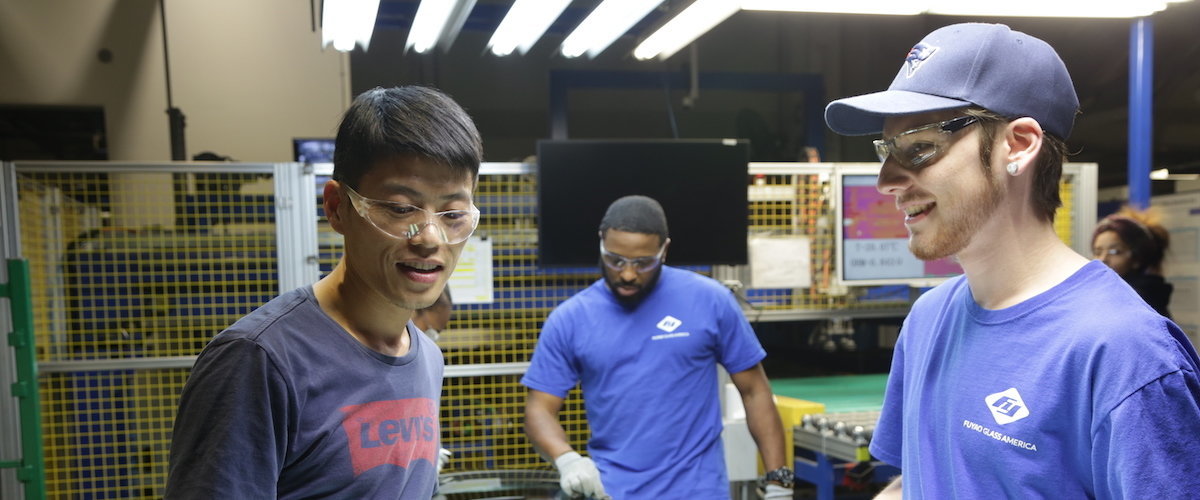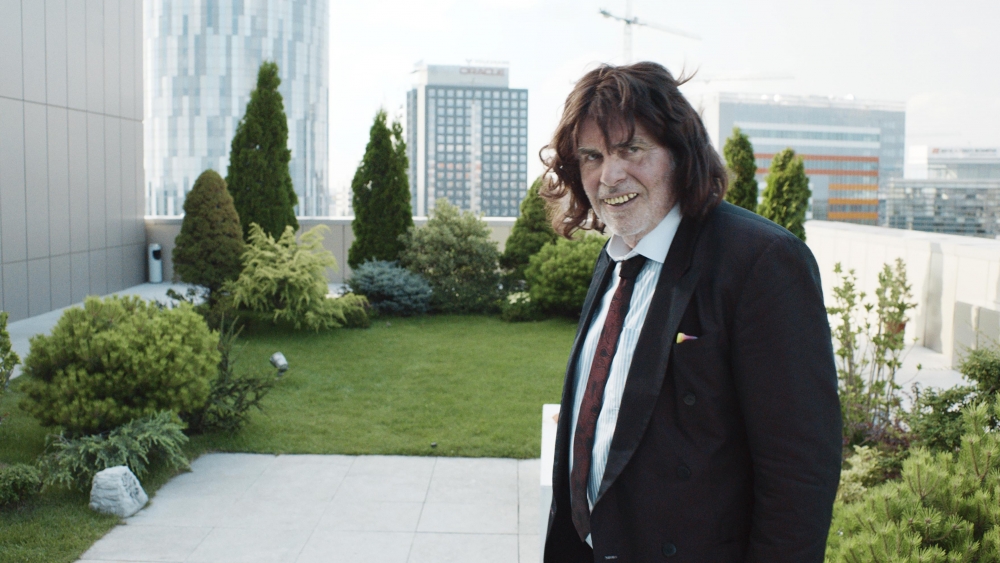American Factory
by Hope Madden
When filmmakers Steve Bognar and Julia Reichert documented the last days of Moraine, Ohio’s GM plant for their Oscar nominated 2008 doc The Last Truck, they probably did not foresee a second nomination coming nearly a decade later for what amounts to a sequel.
And yet, American Factory returns to the same scene, this time to provide a fly-on-the-wall peek at the Fuyayo Glass Factory, a Chinese/American experiment taking place inside those same walls.
The first film released by Michelle and Barak Obama’s Higher Ground Productions, American Factory is a case study in cross-cultural miscommunication and national personality clash.
After Moraine’s GM plant closed, the town sank into economic disaster—something Dayton’s own Bognar and Reichert certainly witnessed daily since the short film. Looking to expand their production in the States, China’s Fuayo Glass Industry Group purchased the old GM plant and instantly created quite a buzz.
What Reichert and Bognar capture is astonishing and unnervingly honest. Chinese workers in Ohio are given a crash course in what to expect from Americans, as management tutors them to expect blunt honesty and the Americans’ belief that they are somehow special no matter who they are. Meanwhile, American managers are treated to a company meeting in China where the orderliness and productiveness of the workers inspires awe, the propaganda-riddled pageantry alarms, and the sight of employees sifting through broken glass to find pieces worth salvaging horrifies.
The human struggle at the plant mostly comes down to an attempt to unionize, which Chinese management sees as an opportunity for lazy Americans to gut productivity while the American labor sees it as an opportunity to institute legal protections concerning safety, health code regulations, wages and benefits.
It truly is as if the parties speak different languages.
Bognar and Reichert strive to provide a balanced point of view. Any finger- wagging is directed at both sides of the argument, but even that’s somewhat limited. The filmmakers and their film are more interested in the human side of the exchange. The film sheds light on the loneliness of the Chinese workers biding their time until their families can be brought overseas. We’re also privy to the early optimism and then heartbreaking disappointments faced by the Ohioans hoping for another chance to make an honest living.
While the cultural wreckage offers a fascinating sociological experiment, the film ends far more ominously as automation proves to eliminate all concerns over wages, hours, productivity, quality, jingoism, racism and any other human frailty you can think of.
What the filmmakers encapsulate about humanity, culture and the future of labor is equal parts enthralling and frightening.


